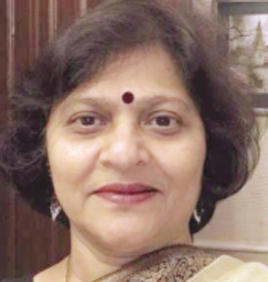Sheela Bhatt
IWPC’s special issue has given us time to reflect on our careers. For sometime I have been reflecting on one question: What is the biggest shortcoming of the last four decades of the Indian media, which I have been part of since 1979? Journalism is all about reflecting society’s aspirations, pain and pleasures. It is about speaking truth to power as in a democracy the rulers are merely representatives of the people.
The media is expected to preserve and protect an individual’s freedom and also portray all sides of an argument, extract the truth, however unpalatable it may be. Many issues in contemporary India are a baggage of history.There are issues like caste that the Indian State
and Constitution reject, which society a ls o o v e r w h e lmi n g l y fi n d s unacceptable. On issues of India’s known fault-lines – communalism or casteism – the media has been helpingtotake thedebate forward. However, in the last three or four decades, the
media – including myself – has miserably failed to understand the urgency of making that ‘Other India’ – those millions living in villages and largely engaged in farming and ancillary industries – ‘headline worthy.’ New Delhi’s English media has an intimidating presence in the political world, but from the 1970s to the present, it has never presented front pages news from the India that resides in villages. Before and during debates in Parliament, the 750 plus MPs – a majority of whom comes from villages or towns – are not bothered about the media’s priorities. They know the real issues of their voters’ lives and their respective regions are never understood nor taken up by the media with missionary zeal. The reasons behind farmers’ suicides are many. Had we – editors and reporters – explained and insisted how small farmers should get higher prices for their produce, then only not the Indian economy, even normal Indian life would have been sustainable. It is a criminal waste of national capital when farmers don’t even pluck tomatoes from their fields because they will not get a price to recover its
transportation cost! Should the media catering to the urban middle class not have argued forcefully that we need to pay more in cities and suburbans for agricultural produce in the national interest? Instead we fashionably write how onions are costly in New Delhi. The economic realities are such that it corrodes India internally. How is it that the building of an urban metro railway network is front page news but not the need for a canal network? How is it that vacating urban apartments in Kochi on the courts order is more important than the questionable activities of corporates in villages that affects patterns of agriculture? The current economic distress is more about the
depression in villages and towns than anything else. In New Delhi where even a small newsitem on the front page is capable of creating nation-wide notice, agriculture and villages infrastructure are not attractive topicsfor editorswhowrite andthinkonly inEnglish. Most of our society’s problems today stems from the fact that more than 70 percent of the Indian people have never been part of ‘sexy’, ‘smart’ news items.TheEnglish media in Delhi enjoy an inexplicable influence in national politics. These 7, 8 English newspapers have failed to debate effectively which is the best suited model of development. I wish I could get back my 40 years. I would like to live again as a reporter of all things Indians, but my ground zero of reporting should be rural India. Since Independence the idea perpetuated through the media, films and books is that villagers are ‘uncouth, unclean, uneducated’ and urban India is ‘scientific and sophisticated’. Pure propaganda that we
have perpetuated for seven decades.

